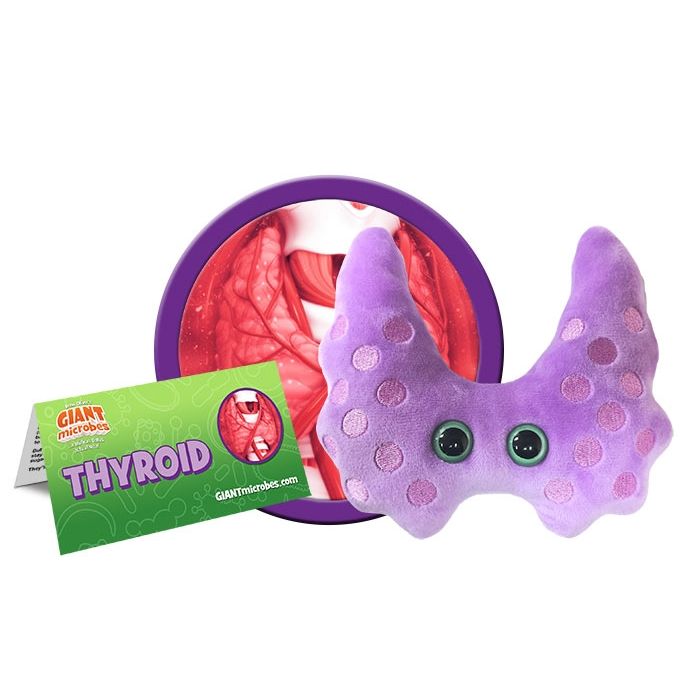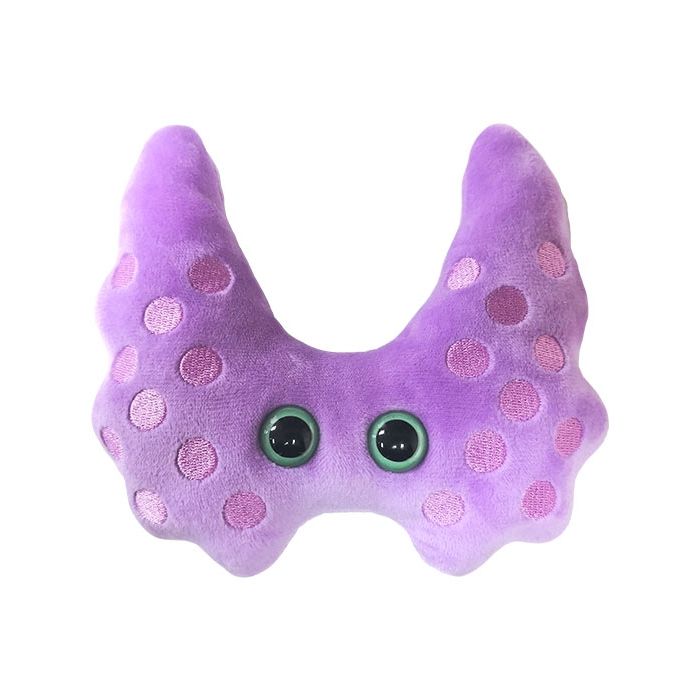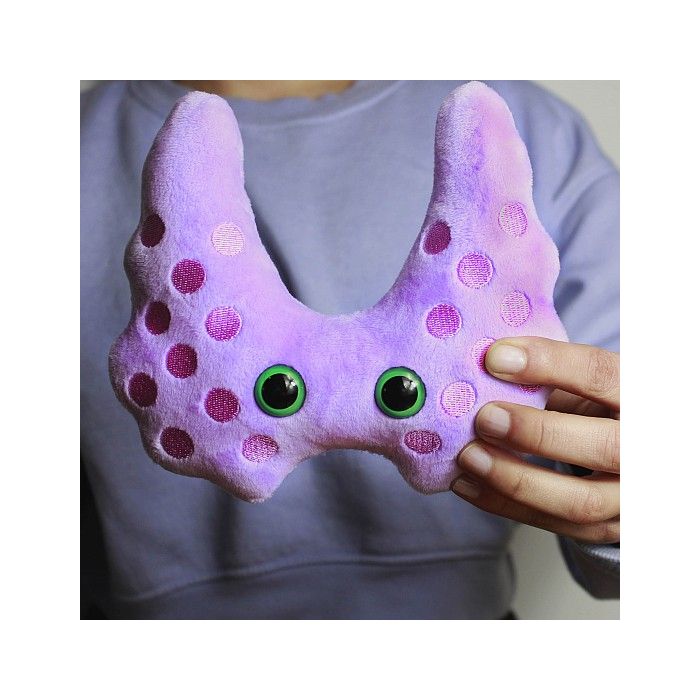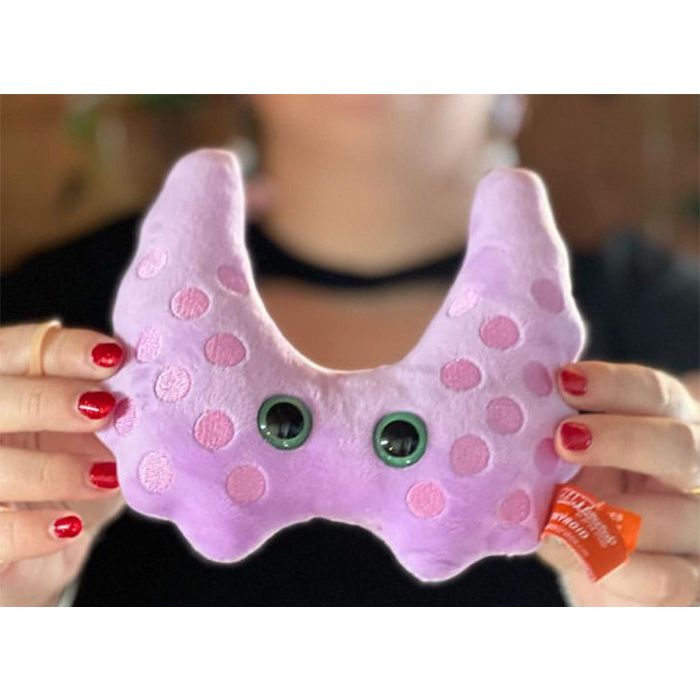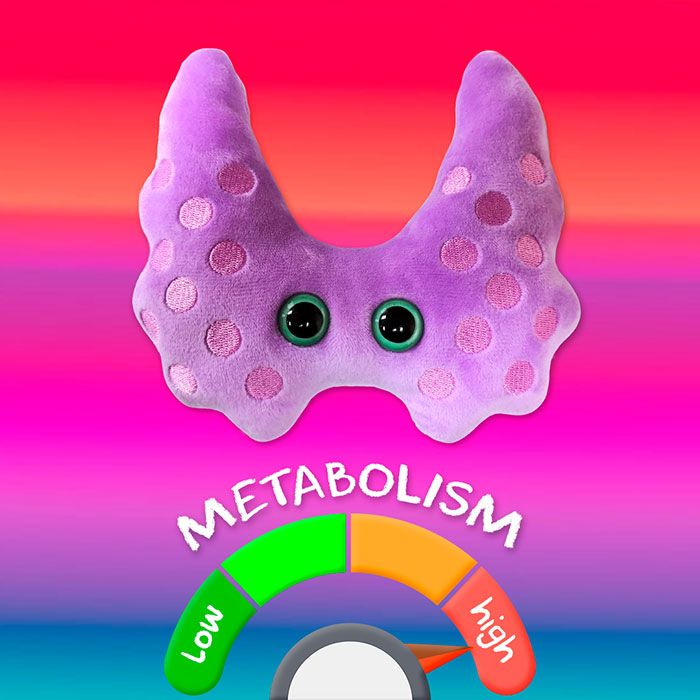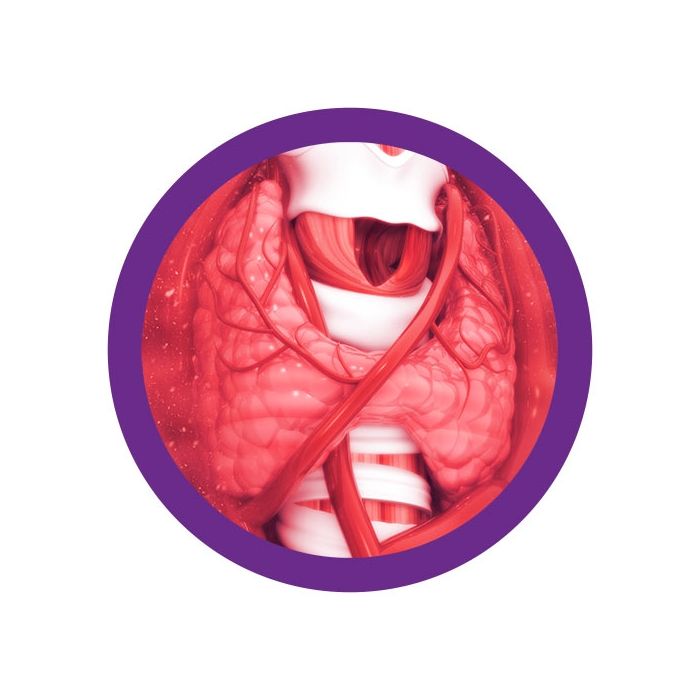Thyroid
The thyroid is a large endocrine gland located in the front of your neck. The thyroid functions to control your body’s rate of metabolism, including maintenance of body weight, the rate of energy use and your heart rate.
This adorable plush representation of a human thyroid provides a fun hands-on way to learn about your glands, endocrine system, anatomy and biology. GIANTmicrobes Thyroid is soft, cuddly and makes the most memorable get well gift for loved one's post-surgery.
Give a soft touch and good feeling to those dealing with Thyroid issues. Unique gift for scientists, doctors, students, nurses, doctors, and anyone with a healthy sense of humor.
Features detailed embroidery, high quality materials and includes an educational printed card with fascinating facts about this incredible gland.
Size: 15 x 15 x 5cm
Product Details
Additional Information
| Sizes | Giantmicrobes are based on actual microbes, cells, organisms and other critters, only 1,000,000 times actual size! Gigantic (GG) 40-60cm XL (XL) 25-38cm Original (PD) 12-20cm Keychain (KC) 5-10cm with clip |
|---|---|
| Materials | Plush from all new materials. Stuffed with polyester fiber fill. Surface washable: sponge with water & soap, air dry. |
| Packaging | Each plush microbe includes a printed card with fun, educational and fascinating facts about the actual microbe or cell. |
| Safety | Every product meets or exceeds U.S. and European standards for safety. For ages 3 and up. |
All about Thyroid
FACTS: The thyroid is a large endocrine gland located in the front of your neck. It has two halves that wrap around the windpipe. The endocrine system uses hormones to control body functions. Unlike nerve signals which respond within seconds, hormones have long-lasting effects and can act over hours or months. Hormones, such as those produced by the thyroid gland, travel in your blood to reach every body part.
The thyroid functions to control your body’s rate of metabolism, including maintenance of body weight, the rate of energy use and your heart rate. It does this by producing and releasing hormones. Unlike other endocrine glands, the thyroid can also store the hormones it produces. The thyroid is also unique in that its cells are the only cells in the body that can absorb iodine, found in many foods. The thyroid combines iodine with amino acids to produce the hormones thyroxine and triiodothyronine. Every cell in the body depends upon these hormones for regulation of their metabolism.
The thyroid gland is under the control of the pituitary gland, a peanut-sized gland at the base of the brain. When the level of thyroid hormones drop too low, the pituitary gland produces thyroid stimulating hormone (TSH) which directs the thyroid to produce and secrete more hormones. The thyroid acts like a furnace with the hormones representing heat and the pituitary gland as the thermostat. When the heat gets back to the thermostat, it turns the thermostat off. As the room cools (hormone levels drop), the thermostat turns back on (TSH increases) and the furnace produces more heat (hormones). The pituitary gland itself is regulated by a region of the brain called the hypothalamus. You can imagine the hypothalamus as the person who regulates the thermostat since it tells the pituitary gland at what level the thyroid should be set.








